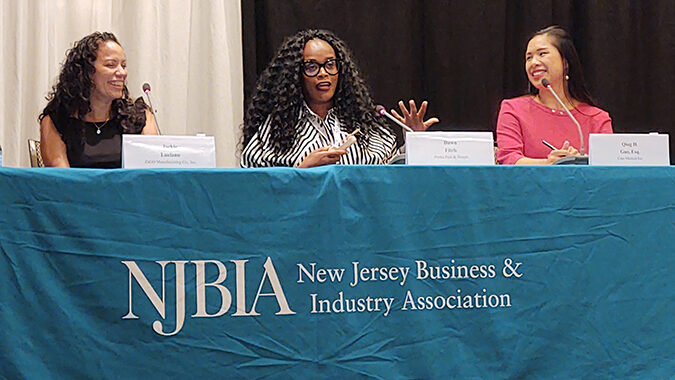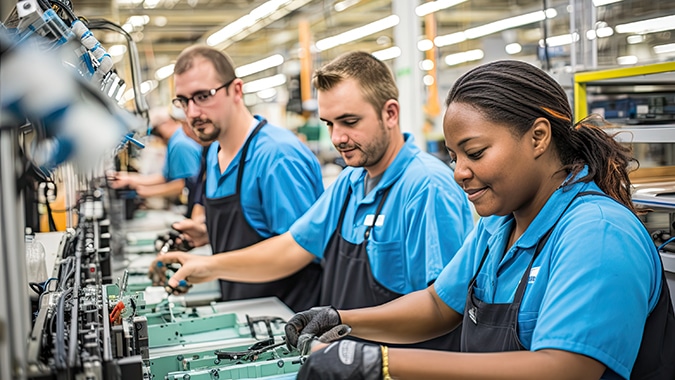– By Anthony Birritteri, Editor-in-Chief, New Jersey Business Magazine –
Manufacturing is alive and well in New Jersey, but more women should be working in the industry, according to a panel discussion on manufacturing held Wednesday at the New Jersey Business & Industry Association’s 9th Annual Women Business Leaders Forum (WBLF) in Newark.
Moderator Constantina Meis, of the New Jersey Manufacturing Extension Program (NJMEP), revealed that women represent only 30% of the manufacturing workforce across the country, while they represent 48% of the regular workforce. “Manufacturing is an amazing career to be in … but how can more women be attracted to the industry?” Meis asked.
Panelist Jackie Luciano, vice president at ZAGO Manufacturing Co., Inc., Newark, said women, and the younger generation of potential employees, must know about the different positions in manufacturing, from sales and marketing, to legal, to being on the “shop” floor, to computer programming.
Discussing the work environment and culture at ZAGO, which is a manufacturer of high-tech, sustainable sealing fasteners and components, Luciano said the company provides a supportive environment that offers flexible schedules and encourages students to pursue further education for advancement within the company. “We show workers that there are certain positions in the company they can aspire to because: If you don’t see it, you don’t know you could be it,” Luciano said.
Dawn Fitch, president of Pooka Pure & Simple, an artisan bath and body company that was started in her kitchen (developing products on her stove, to be exact), but has since moved to a showroom in Kearny, said there has to be a “focus on the makers;” women who started making goods from home during the COVID-19 pandemic, and began selling them on platforms such as TikTok.
“We need to embrace these women – mentor them, educate them, improve their self-esteem, and show them how they can get to a full-blown company,” Fitch said.
Qing Guo, general counsel at Case Medical, Inc., a manufacturer of reusable medical instrument reprocessing products and chemical solutions used in healthcare facilities around the world, said a key aspect of getting women involved in manufacturing is reaching out and partnering with educational institutions for internships and co-op programs. Via this pathway, Case Medical “gives students the opportunity to get their hands wet … to learn that manufacturing is such a well-rounded and powerful career path,” Qing said.
Similarly, NJMEP’s Meis talked about a newly launched pilot program called “Makers & Creators” that NJMEP is providing in partnership with the New Jersey Economic Development Authority. The program entails having a mobile truck unit, installed with manufacturing equipment, visit high schools across the state’s 21 counties over the next two years.
It is clear that Meis, Luciano, Fitch, and Guo – and the respective manufacturing companies they work for or lead – are all doing their part in helping more women to establish careers in manufacturing.

